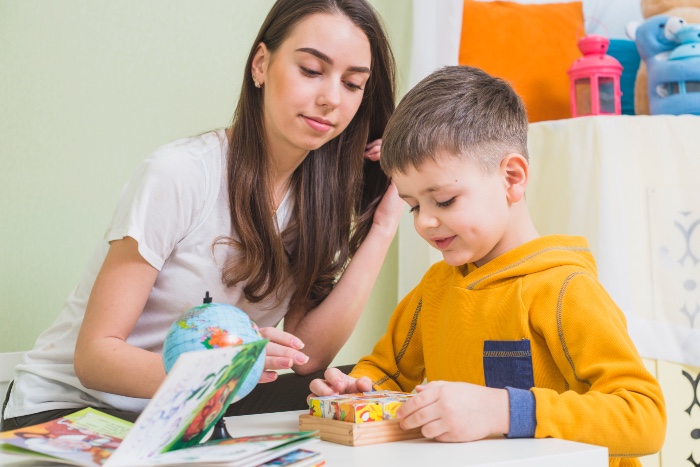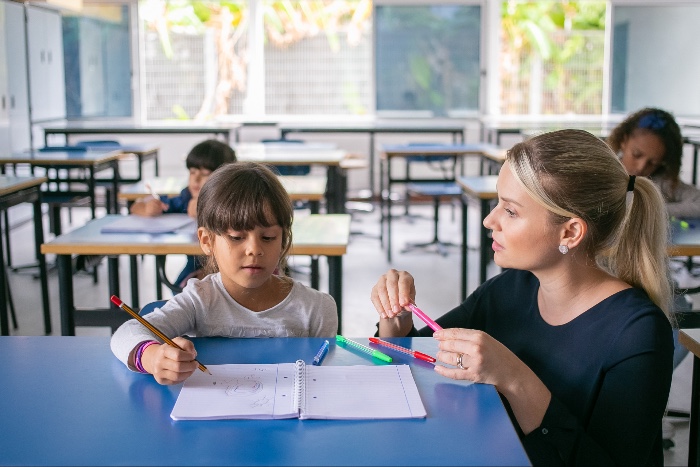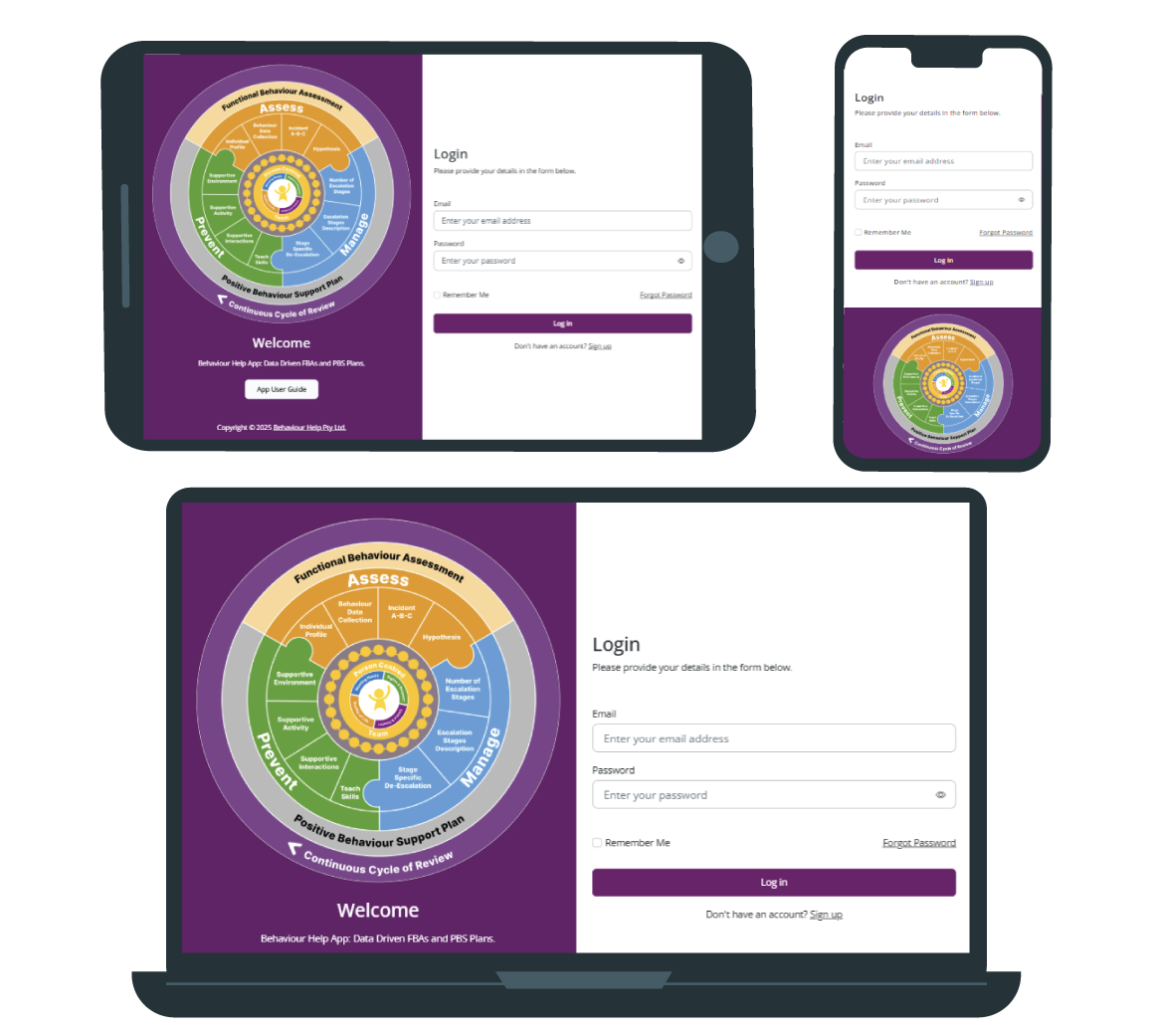Special Educational Needs (SEN) is a term used to describe children and young people who require additional support to access education and achieve positive outcomes.
This may be due to a range of challenges, including difficulties with learning, communication, physical or sensory impairments, or social, emotional, and mental health needs. For children with SEN, school and home environments often need to be thoughtfully adapted to help them succeed.
We recognise that supporting children with SEN often goes hand-in-hand with managing behaviours of concern. These behaviours might include difficulties with emotional regulation, social interaction, or coping with change — all of which can present unique challenges in both mainstream and specialist educational settings.
At Behaviour Help, we offer a range of practical tools, insights, and resources to support the management of challenging behaviours, with the goal of achieving positive outcomes both at home and in educational settings. We also provide advice to parents and educators regarding children with special educational needs, emphasizing the importance of seeking expert guidance from specialists, teachers, and health professionals for early intervention and ongoing assistance.
We strongly advocate for the use of the Positive Behaviour Support (PBS) framework and are committed to helping children and young people with additional needs, such as autism, through guidance on behaviour management strategies and creating supportive, inclusive learning environments.

What Are Special Educational Needs?
Special Educational Needs (SEN) is a legal term used to describe children and young people who have learning difficulties or disabilities that require special educational provision. This provision goes beyond what is normally available to others of the same age in a mainstream school. SEN provision is specifically for those whose needs cannot be met by what is provided for most children.
It is designed to ensure that a child's education is appropriately adapted to meet their specific needs and help them achieve their potential.
A child is considered to have SEN if they have significantly greater difficulty in learning than the majority of others of the same age, or if they have a disability that makes it harder for them to access the facilities and resources typically provided in school. These difficulties can arise from a wide range of factors, including sensory or physical needs, communication difficulties, emotional and social challenges, or cognitive learning delays.
Examples of Conditions That Qualify For SEN Support
At Behaviour Help, we provide information on a wide range of conditions that may lead to a child or young person requiring special educational provision.
Below are examples of conditions that could qualify a child for SEN support, depending on how their individual needs affect their education: Pupils with these conditions may require tailored support to address their specific educational needs.
Support for children with these and other conditions will vary based on how their individual needs present and impact their learning, communication, emotional wellbeing, behaviour, or physical access to education. Some pupils may require extra help, such as additional assistance, specialized resources, or tailored teaching strategies to support their progress.
Identifying Special Educational Needs
Identification of SEN often begins when concerns are raised — either by parents, the child's class teacher, or other professionals — about a child’s progress or behaviour. This might relate to academic achievement, communication, social interaction, or how a child manages their emotions or behaviour within the school environment.
A young person exhibiting behaviours of concern or challenging behaviours is often a pre-cursor to identifying a need for special educational needs.
For example, a child with ADHD (Attention Deficit Hyperactivity Disorder) might struggle to sit still, follow instructions, or remain focused during lessons. These difficulties can sometimes be misinterpreted as deliberate misbehaviour, when in fact they are often a direct result of the child’s underlying learning difficulty.
Recognising these behaviours of concern as potential indicators of special educational needs is an important step in ensuring the child receives appropriate support rather than disciplinary measures alone.
The child’s school may carry out a functional behaviour assessment to address the behavioural difficulties; however, to initiate a SEN provision the child's teacher may carry out a learning difficulty assessment which helps to establish whether a child requires special educational provision or not. The child's school may also be involved in record-keeping and ongoing communication with parents regarding the assessment process.
This assessment may look at how the child is performing compared to their peers, whether they are making expected progress, and what barriers might be impacting their learning or behaviour.
Schools have a duty to identify and support children with SEN through a graduated approach: assess, plan, do, review. When additional support is identified as necessary, schools develop tailored strategies and interventions as part of their SEN provision. For some children, particularly where needs are more complex, this can lead to the involvement of external specialists such as educational psychologists, speech and language therapists, or occupational therapists.
What Qualifies a Child for SEN Support?
A child qualifies for SEN support in school when:
-
They have a learning difficulty that affects their ability to access the curriculum without additional help.
-
They require adjustments or interventions that go beyond the standard provision offered in mainstream schools.
-
Their needs fall within one or more of the following broad areas:
-
Communication and interaction
-
Cognition and learning
-
Social, emotional, and mental health difficulties
-
Sensory or physical needs
SEN support is distinct from the support generally available to other children in a school setting, as it involves additional or different assistance tailored to the child's specific needs.
When a child’s needs are identified, schools are expected to work collaboratively with parents and professionals to put in place appropriate support. In some cases, where significant support is required, a child may have an Education, Health and Care Plan (EHC Plan) to formalise their provision.

Managing Behaviour alongside Special Educational Needs
Effective behaviour management is essential for all children, but it is particularly important for those with Special Educational Needs (SEN).
For children with SEN, challenging behaviours are often not a matter of choice but arise from difficulties with communication, emotional regulation, or sensory processing. Supporting these young people requires patience, understanding, and a proactive approach grounded in evidence-based practice.
At Behaviour Help, we advocate for the use of Positive Behaviour Support (PBS) as the foundation for managing behaviour in educational settings. PBS focuses on understanding the reasons behind behaviours of concern, reducing triggers, and teaching more appropriate and functional alternatives. This person-centred approach promotes the social development and wellbeing of children with special educational needs, while creating calmer, more inclusive learning environments for other children too.
An important tool in this process is the Functional Behaviour Assessment (FBA). An FBA helps schools and families identify the underlying functions of behaviour — whether a child is trying to avoid a task, gain attention, seek sensory input, or communicate distress.
By understanding why a behaviour is occurring, educators and carers can make informed decisions about appropriate special educational provision. This is a crucial step for SEN Co-ordinators and teaching staff supporting young people’s SEN needs in both compulsory school age and further education settings.
To support this work, we developed the Behaviour Help App — a practical, user-friendly tool designed to help track behaviours over time, spot patterns and trends, and develop meaningful, personalised strategies.

Introducting...The Behaviour Help App
Your All-in-One AI Tool for FBAs and PBS plans
You’re doing important work. That’s why we built the Behaviour Help App — to make it easier to track behaviour trends, identify patterns, and develop meaningful, person-centred strategies.
The app simplifies the data collection process, helping schools and families build a clearer picture of a child’s needs and progress. This can be invaluable when planning interventions or working collaboratively with SEN professionals. When additional expertise or assessments are required, involving outside specialists, such as speech and language therapists or educational psychologists, can provide further support for a child's special educational needs.
Ultimately, thoughtful and effective behaviour management plays a vital role in helping children with SEN achieve positive educational outcomes. It allows them to engage more fully with their learning, thrive socially and emotionally, and prepare for life beyond school.
What Does SEN Look Like in Practice?
How Schools Support Children with Special Educational Needs
SEN provision in schools is about identifying barriers to learning and putting in place the right support to help children achieve positive outcomes — academically, socially, and emotionally. This support varies depending on the child’s individual needs but is always aimed at helping them access learning alongside their peers wherever possible. Nurseries, as well as schools, are required to use their best endeavours to identify and meet the SEN needs of children in their care.
Practical Examples of SEN Support in Schools
Here are some of the most common practical strategies and provisions schools use to support children with Special Educational Needs; these approaches are designed to help pupils with SEN access learning and thrive in the school environment:
1. Differentiated Teaching
Teachers adapt lessons and materials to meet the learning needs of individuals. This might involve breaking tasks into smaller steps, using visual aids, or providing additional time to complete work.
2. Classroom Support (Teaching Assistants)
Many children with SEN benefit from extra support within the classroom. A Teaching Assistant (TA) or Learning Support Assistant may work alongside them to help with tasks, manage routines, or support communication.
3. Individual or Small Group Work
Schools often provide targeted sessions focused on specific areas such as literacy, numeracy, emotional regulation, or social skills. These may happen within the classroom or in a quieter space.
4. Assistive Technology
Some children use technology to help them learn more effectively — this might include text-to-speech software, communication devices, or adapted keyboards.
5. Environmental Adaptations
Classroom environments can be adjusted to reduce sensory overload or to accommodate physical disabilities — for example, creating quieter areas, providing sensory tools, or making sure the space is accessible.
6. Behaviour Support Plans
For children displaying behaviours of concern, schools develop Positive Behaviour Support Plans based on Functional Behaviour Assessments. These plans outline proactive strategies, communication tools, and ways to help the child manage their emotions and behaviour positively.
7. Specialist Input
Schools often work in partnership with external professionals — such as speech and language therapists, educational psychologists, or occupational therapists — to provide targeted interventions and assessments to inform special educational provision.
8. SEN Co-ordinator (SENCo) Oversight
The SEN Co-ordinator works closely with teachers, parents, and external professionals to ensure the child’s needs are identified, reviewed, and met through an ongoing cycle of assess, plan, do, review.
Why These Provisions Matter
These practical strategies are not just about helping a child achieve academically; they also support social development, build confidence, reduce anxiety, and enable young people to enjoy and engage with school life fully. Support networks—including friends, family, and professionals—can play a valuable role in advocating for and assisting children with SEN. These strategies are designed to help children with SEN access the same opportunities as other children, preparing them for further education and life beyond school.
Local Authority Responsibilities and Attitudes Towards SEN
The Role of Local Authorities in SEN Provision
In the UK, local authorities (LAs) have a legal responsibility to ensure that children and young people with Special Educational Needs (SEN) receive appropriate support to help them access education and achieve positive outcomes. This responsibility covers children of compulsory school age through to further education, and includes:
-
Assessing children’s needs through the Education, Health and Care (EHC) assessment process.
-
Issuing Education, Health and Care Plans (EHCPs) where necessary.
-
Ensuring appropriate special educational provision is in place.
-
Providing access to specialist services, such as educational psychology, speech and language therapy, and specialist teaching teams.
Local Authority Attitudes
While the law is clear about these responsibilities, in practice the attitudes and levels of support offered by local authorities can vary significantly across the country. Some local authorities are proactive and take a child-centred, supportive approach, working closely with schools, parents, and professionals to ensure children with SEN receive the support they need promptly and effectively. These authorities tend to recognise the long-term benefits of good SEN provision, not just for individual children but for wider communities.
However, in other areas, parents and schools report challenges in accessing appropriate support. These might include:
-
Delays in assessments or issuing EHCPs.
-
Budget constraints leading to reluctance in funding higher levels of provision.
-
A tendency to push responsibility back onto schools without offering sufficient resources or specialist input.
-
An emphasis on keeping children in mainstream schools without fully understanding the level of support required to make inclusion meaningful.
In some cases, families feel they must fight for recognition of their child’s needs. This can be especially difficult when behaviours of concern are misunderstood as poor parenting or disciplinary issues, rather than indicators of an unmet SEN need.
EHC Plans
What is an EHC Plan?
An Education, Health and Care (EHC) plan is a legally binding document that sets out the special educational, health, and social care needs of a child or young person with special educational needs.
Designed for children and young people up to the age of 25 who require more support than is available through standard SEN support, an EHC plan is created by the local authority in close collaboration with the young person, their parents, and professionals involved in their care.
The EHC plan details the special educational provision, as well as any additional health and social care support, needed to help the child or young person achieve the best possible outcomes in their education and daily life. By clearly outlining the support required, the EHC plan ensures that children and young people with special educational needs receive the right help at the right time, tailored to their individual circumstances.
The Process of Getting an EHC Plan
The journey towards an EHC plan usually begins when a significant need for extra support is identified. A request for an EHC needs assessment can be made by the child’s parents, the young person themselves (if over 16), or a professional such as a teacher or doctor. Once the request is submitted, the local authority will decide whether to carry out a formal assessment.
This involves gathering detailed information from a range of sources, including the child’s school, teachers, healthcare professionals, and social care services. If the assessment shows that an EHC plan is necessary, the local authority will draft a plan and share it with the parents for their feedback.
The final EHC plan must be issued within 20 weeks of the initial request, ensuring that children and families receive timely support. Throughout this process, parents and teachers play a vital role in providing insights and advocating for the child’s needs.
How EHC Plans Support Children and Families
EHC plans offer a comprehensive and coordinated approach to supporting children and young people with special educational needs. By bringing together special educational provision, health, and social care support in one document, the EHC plan ensures that all aspects of a child’s development are considered.
The plan is regularly reviewed and updated to reflect any changes in the child’s needs, making it a dynamic tool for ongoing support. With an EHC plan in place, children and young people can access the resources and specialist help they need to thrive in school and beyond.
Schools, health professionals, and social care teams work together to deliver the support outlined in the plan, helping children achieve their educational goals and develop the skills they need for adulthood. For families, the EHC plan provides clarity, accountability, and peace of mind, knowing that their child’s needs are recognised and met through a legally binding agreement.
The Local Offer
What is the Local Offer?
The Local Offer is a vital resource published by every local authority, providing clear and accessible information about the special educational, health, and social care services available for children and young people with special educational needs in their area.
Covering support from birth to age 25, the Local Offer includes details about services in mainstream schools, special schools, and further education settings. It outlines what support is available, how to access it, and the eligibility criteria for different types of help.
The Local Offer also provides information on personal budgets, direct payments, and other options for families to tailor support to their child’s needs. By bringing together all this information in one place, the Local Offer makes it easier for parents, carers, and young people to understand their options and make informed decisions about their education, health, and care.
It is designed to empower families, promote transparency, and ensure that children and young people with special educational needs can access the right support at every stage of their journey.

